Defi Institution

Is decentralized finance regulated by governments or financial institutions ?
The regulation of decentralized finance (DeFi) is a complex issue that involves both government and financial institutions. Governments can regulate DeFi indirectly through tax laws and anti-money laundering/know your customer (AML/KYC) laws, while also taking enforcement actions such as investigations, sanctions, and fines. Financial institutions may engage in self-regulation by establishing industry standards and best practices, building bridges with traditional finance, and offering insurance products tailored for DeFi risks. As the DeFi ecosystem continues to grow, it is likely that both government and financial institution regulation will continue to evolve.

How does DeFi differ from traditional finance ?
DeFi is a financial system based on blockchain technology and smart contracts, while traditional finance relies on intermediaries like banks. Key differences include centralization vs decentralization, accessibility, transparency, security, cost efficiency, and regulation. DeFi offers advantages such as wider accessibility, higher transparency, and lower fees, but also comes with risks. It's important to research and consult professionals before making financial decisions.

Are there any risks associated with investing in DeFi ?
Investing in DeFi comes with risks such as smart contract vulnerabilities, impermanent loss, regulatory uncertainty, and lack of transparency. It is important for investors to carefully evaluate these risks before investing in any DeFi project.

How do DeFi tokens work ?
Decentralized Finance (DeFi) tokens are digital assets operating on blockchain technology, designed to facilitate financial transactions without intermediaries. These tokens can represent various assets like currencies, commodities, and cryptocurrencies. Key features of DeFi tokens include decentralization, smart contracts, and interoperability. They work through token issuance, utility within their respective projects or platforms, and governance mechanisms allowing holders to vote on important decisions related to the project's development. Benefits of DeFi tokens include accessibility, transparency, and innovation in financial products and services.

What is decentralized finance (DeFi) and how does it work ?
Decentralized finance (DeFi) is a financial system based on blockchain technology that operates without intermediaries like banks. It is transparent, borderless, permissionless, and interoperable. The core components of DeFi are smart contracts, cryptocurrencies, decentralized applications, and blockchain infrastructure. Users can access DeFi platforms through wallets, provide collateral for loans, earn interest by depositing their cryptocurrencies into lending platforms, trade assets peer-to-peer, get insurance against risks associated with smart contracts and cryptocurrency holdings, and have voting rights within the ecosystem. However, DeFi faces challenges such as scalability issues, regulatory uncertainty, security risks, and user experience complexity. Despite these challenges, DeFi has immense potential to democratize finance and provide inclusive solutions.

How secure is decentralized finance compared to traditional finance ?
The text provides a comparative analysis of the security aspects of decentralized finance (DeFi) and traditional finance (TradFi). DeFi relies on blockchain technology for peer-to-peer transactions, while TradFi operates through centralized institutions. Both systems have unique security features and risks, with DeFi offering transparency and automated contract execution but facing smart contract vulnerabilities and lack of regulatory clarity. TradFi benefits from regulatory oversight and physical security measures but is susceptible to systemic risks and cybersecurity threats. The choice between DeFi and TradFi depends on individual preferences and risk tolerance, and it's crucial to stay informed about new developments in the evolving financial landscape.

How can I get started with decentralized finance ?
Topic Summary: The text provides an overview of Decentralized Finance (DeFi) and its benefits, such as transparency, accessibility, efficiency, and innovation. It outlines steps for getting started with DeFi, including self-education on cryptocurrencies and blockchain, setting up a crypto wallet, acquiring cryptocurrency, connecting to a DeFi platform, exploring DeFi services like lending, borrowing, liquidity providing, yield farming, and tokenization, and practicing safe DeFi habits. The text emphasizes the importance of risk management, security, and continuous learning in navigating the evolving world of DeFi.
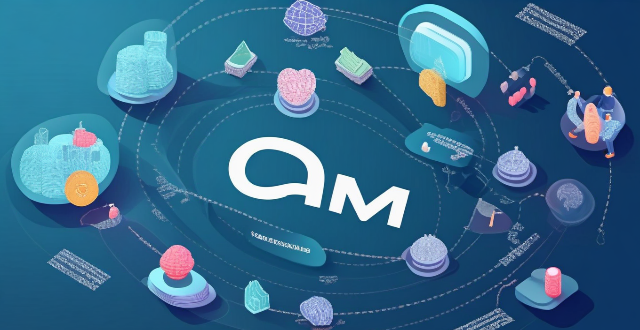
What are the benefits of using decentralized finance ?
Decentralized finance (DeFi) is a sector within the cryptocurrency space that aims to create an open-source, permission-less, and transparent financial service ecosystem using blockchain technology. It offers several benefits over traditional financial systems, including increased accessibility, lower costs, greater transparency, enhanced security, programmable money, improved efficiency, and financial inclusion. By eliminating intermediaries and reducing overhead costs, DeFi makes financial services more affordable and accessible to a wider audience. Its transparent ledger system reduces fraud and increases trust among participants, while its secure blockchain networks protect user funds. DeFi also enables programmable money, allowing for customized financial products and services, and improves efficiency by streamlining transaction processing. Ultimately, DeFi has the potential to revolutionize finance by democratizing access to essential financial services for underbanked populations and bridging the gap between developed and developing countries in terms of financial access.

What are some popular DeFi platforms ?
Summary: The text provides an overview of popular DeFi (decentralized finance) platforms, including Uniswap, Compound, MakerDAO, Aave, and Curve Finance. Each platform has unique features that enable users to trade, lend, borrow, or earn interest on their crypto assets without intermediaries. These platforms utilize various models such as automated market makers, over-collateralization, flash loans, and innovative algorithms to facilitate transactions and maintain stability in a decentralized environment.
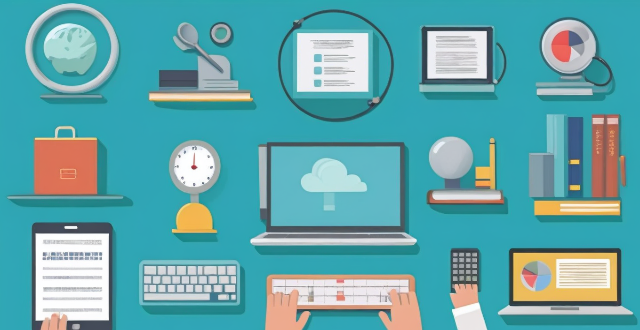
What are the cost implications of using a remote education platform ?
Using a remote education platform can have various cost implications for both the institution and the students. Institutions may need to invest in hardware, software, staff training, and ongoing maintenance. Students may also need their own devices and internet access, as well as additional resources. It is important to carefully consider these costs before deciding to use a remote education platform.
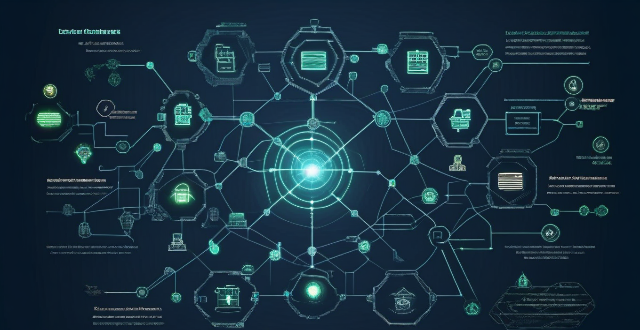
What is the future of blockchain beyond cryptocurrency ?
This article explores the potential applications of blockchain technology beyond cryptocurrency, highlighting key areas such as decentralized finance (DeFi), supply chain management, healthcare, government services, and intellectual property rights management. It emphasizes how blockchain can improve transparency, security, efficiency, and accessibility in these sectors through features like peer-to-peer transactions, smart contracts, tokenization, traceability, interoperability, data privacy, identity management, public records storage, voting systems, proof of ownership, streamlined licensing, and fraud prevention. The article concludes by stating that the future prospects of blockchain technology are vast and promising, offering numerous opportunities for innovation and transformation across various industries.

How does Cross-Border Payment work ?
Cross-border payments are transactions that involve transferring money between different countries. The process is complex and requires coordination among various parties, including banks, payment processors, and financial institutions. The steps involved in cross-border payments include initiation of the payment, verification and authorization, execution of the payment, and settlement and reconciliation. There are several methods available for cross-border payments, such as wire transfers, online payment platforms, and mobile wallets. Choosing the appropriate method ensures safe, secure, and efficient cross-border payments.

What documents do I need to exchange currency ?
Exchanging currency at Bank of China or any other financial institution requires presenting valid personal identification documents and relevant materials proving the necessity for the exchange, including proof of need and a usage declaration. The process adheres to specific regulations set by the State Administration of Foreign Exchange, such as annual total amount management and verification and approval procedures. It is crucial to understand these requirements and check with your bank beforehand to ensure a smooth currency exchange experience.

What is cryptocurrency ?
Cryptocurrency is a type of digital or virtual currency that uses cryptography for security and operates independently of a central bank. It is decentralized, meaning it does not rely on any government or financial institution to maintain its value. Instead, it relies on a peer-to-peer network to process transactions and manage the creation of new units. Its key features include decentralization, transparency, security, anonymity, and limited supply. Some examples of cryptocurrencies include Bitcoin, Ethereum, Ripple, Litecoin, and Dogecoin.

How can I recover from telecommunications fraud ?
In summary, to recover from telecommunications fraud, one should immediately report suspicious transactions to their bank or financial institution, file a police report, and consider alerting relevant agencies. It's essential to protect personal information, update security measures, and educate oneself and others about scams. Legal action may be necessary for significant losses, and strengthening online security is crucial for future protection.

What are the consequences of violating academic integrity principles ?
Violating academic integrity principles can lead to serious consequences on both individual and institutional levels, including academic penalties, damage to reputation, difficulty gaining acceptance into programs or securing employment, emotional distress, and potential loss of accreditation for institutions. It is essential for students to understand the importance of maintaining academic integrity to protect their personal and professional futures, as well as the reputation of their educational institutions.

What are the key factors to consider when choosing an international school or program ?
When selecting an international school or program, consider factorsWhen selecting an international school or program, consider factorsation and reputation, curriculum and extracurricular activities and opportunities for internships or study abroad, cultural diversity and inclusivity, location and facilities, and cost and financial aid options. These considerations can help ensure that the chosen institution aligns with your academic goals and personal preferences, fostering both academic success and personal growth.

What is the future of cryptocurrency ?
The future of cryptocurrency is uncertain but will be shaped by trends like decentralization, adoption and integration, regulation and legal clarity, and innovation.
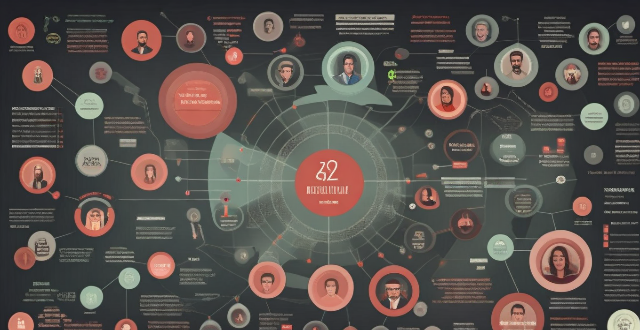
What are the eligibility criteria for scholarships ?
Scholarship eligibility criteria include academic performance, financial need, community involvement, leadership roles, demographic factors, and other specific requirements related to creative work or professional goals.

How can teacher training programs improve the recruitment and retention of high-quality educators ?
To improve the recruitment and retention of high-quality educators, teacher training programs should consider implementing comprehensive benefits packages, supportive work environment policies, professional growth opportunities, improved compensation structures, and strengthened community engagement. These measures can enhance job satisfaction, provide a sense of security, promote inclusivity and respect, motivate teachers to perform better, and foster a supportive community around schools.

What is the difference between a fixed deposit and a mutual fund ?
Fixed deposits offer guaranteed returns and low risk but limited growth potential, while mutual funds provide higher growth potential through diversified portfolios but carry more risk.

What are the major sources of climate finance and how are they allocated ?
The text discusses the main sources of climate finance, which include public sector funding, private sector investment, and multilateral institutions. Public sector funding is provided through government budgets, international climate funds, and domestic climate funds. Private sector investment comes from corporate sustainability initiatives, private climate funds, and impact investing. Multilateral institutions such as development banks, international financial institutions, and United Nations agencies also contribute to climate finance. These sources are crucial for supporting climate action globally, with allocations focused on reducing greenhouse gas emissions, adapting to the impacts of climate change, and promoting sustainable development.

How can we improve climate change education in higher education institutions ?
Climate change is a pressing global issue that requires immediate attention and action. Higher education institutions play a crucial role in shaping the future leaders and decision-makers who will tackle this challenge. Therefore, it is essential to improve climate change education in these institutions to ensure that students are well-equipped with the knowledge, skills, and attitudes necessary to address this complex issue. Key strategies for improving climate change education include integrating climate change into curriculum, promoting research and innovation, engaging students in real-world projects, fostering sustainability on campus, enhancing faculty training and development, and encouraging student leadership and advocacy. By implementing these strategies, higher education institutions can play a vital role in addressing climate change and creating a more sustainable future.
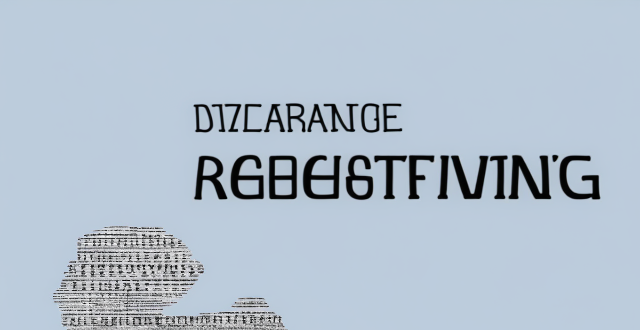
How can students maintain academic integrity in their studies ?
The text discusses the importance of maintaining academic integrity in education and outlines several ways for students to do so. It emphasizes understanding the concept of academic integrity, adhering to school policies, citing sources properly, avoiding plagiarism, being honest in assessments, respecting intellectual property rights, maintaining confidentiality, reporting incidents of misconduct, and seeking help when needed. The text concludes that maintaining academic integrity is crucial for students to achieve success in their academic pursuits and beyond.

What factors determine the amount of a student loan ?
The amount of a student loan is determined by several key factors, including eligibility criteria set by the lender, the cost of attendance at the chosen school, the student's financial need, and the type of loan (federal or private). Other influential factors include repayment options, school choice, and the availability of other financial aid. Students should consider all these elements and explore all possible funding options before taking out a loan.

What resources are available online for studying history ?
This article provides a comprehensive list of online resources for studying history, including digital libraries and archives, online courses and lectures, encyclopedias and dictionaries, virtual museums and exhibits, and forums and discussion groups. The resources offer access to historical documents, photographs, lectures, articles, artifacts, and discussions with fellow enthusiasts. The article emphasizes the importance of utilizing these resources to gain a deeper understanding of historical events and periods.

How can developing countries benefit from international cooperation ?
Developing countries can benefit from international cooperation in multiple ways, including access to technology and innovation, economic growth and trade opportunities, improved healthcare and education, environmental sustainability, and political stability and peace. Technology transfer, research collaborations, capacity building, trade agreements, foreign direct investment, infrastructure development, medical aid, educational exchange programs, renewable energy projects, conservation efforts, clean technology transfer, conflict resolution, democratic institution building, and legal and judicial reform are some of the key areas where developing countries can gain from working with their international counterparts.

How does cryptocurrency affect the global economy ?
The rise of cryptocurrency is having a significant impact on the global economy. Its decentralized nature challenges traditional monetary policy, increases financial inclusion for underserved populations, spurs innovation in the financial sector, and raises regulatory challenges. However, it also presents risks such as fraud and scams, as well as environmental concerns due to high energy consumption in mining.

How do I become a certified fitness instructor ?
To become a certified fitness instructor, you need toTo become a certified fitness instructor, you need to pass a certification exam, participate participate in continuing education, gain experience, build a network, consider specialization, and adhere to ethical standards.